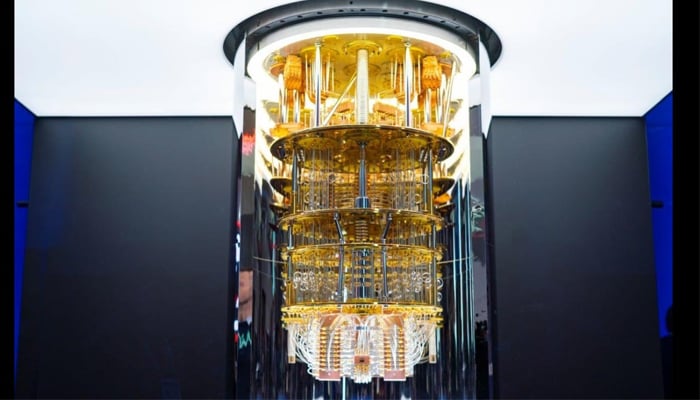"Dream, Dream, Dream! Conduct these dreams into thoughts, and then transform them into action."
- Dr. A. P. J. Abdul Kalam
"Dream, Dream, Dream! Conduct these dreams into thoughts, and then transform them into action."
- Dr. A. P. J. Abdul Kalam
26 Aug 2024
India is on the verge of a technological revolution with the upcoming launch of its first quantum computer. This major milestone is part of the National Quantum Mission (NQM), a strategic effort to place India at the leading edge of quantum technology advancement. With a revised budget of nearly ₹6,000 crore, the mission is now gathering momentum, focusing on building a robust ecosystem for quantum research and development.
The National Quantum Mission, led by Ajai Chowdhry, Co-founder of HCL and Chairman of the Mission Governing Board, has outlined an ambitious plan to accelerate India’s quantum capabilities. After several years of limited progress, the mission has been revitalized with new funding and a clear direction. A significant portion of this budget is earmarked for the development of a quantum computer, a groundbreaking technology that leverages the principles of quantum mechanics to perform computations far beyond the capabilities of classical computers.
In an exclusive interview with BusinessLine, Chowdhry detailed how the mission plans to utilize its funds. Key initiatives include setting up a grant program to support startups with funding between ₹10-50 crore and establishing four Section 8 companies dedicated to advancing quantum technologies in computing, communication, measurement, and sensing. These companies will operate under the guidance of premier institutions like the Indian Institutes of Technology (IITs) and the Indian Institute of Science (IISc), ensuring that the mission benefits from top-tier academic and research support.
One of the mission's most significant achievements will be the launch of India’s first quantum computer, capable of achieving computation of 6 qubits, in the coming months. This quantum computer is a product of the collaborative efforts of several prestigious institutions, led by the Tata Institute of Fundamental Research (TIFR), under the Department of Science and Technology’s "Pre NQM" program known as Quest.
Quantum computers are a revolutionary advancement, utilizing quantum bits or qubits that can exist in multiple states simultaneously, unlike classical bits that are binary. This allows quantum computers to process information at unprecedented speeds, making them ideal for complex computations in fields such as cryptography, material science, and large-scale data analysis.
Chowdhry envisions a future where India’s quantum computers could scale from the initial 6 qubits to 20-50 qubits within the next three years, and further to 50-100 qubits in five years. The ultimate goal is to develop a quantum computer with a capacity of 1,000 qubits within the next decade, positioning India alongside global leaders in quantum computing.

Chowdhry underscores the importance of India’s self-reliance in quantum technology, especially in the face of potential security threats. Highlighting China's significant state investment in quantum computing, Chowdhry notes the risks posed by foreign advancements in this domain. With quantum computing capabilities, adversaries could potentially target critical infrastructure, such as electrical grids and financial systems, thus making it imperative for India to develop its own robust quantum capabilities.
Furthermore, the mission aims to advance quantum communication technologies, an area where India has already seen commercial success. Several Indian startups are actively developing quantum communication products for defense and other sectors.
Recognizing the capital-intensive nature of quantum technology development, the mission is poised to introduce India’s most comprehensive grant program for deep-tech startups. Unlike the typical government grants of ₹10-50 lakh, the mission is considering grants of ₹10-25 crore to meet the substantial financial demands of developing quantum products and solutions. This initiative is expected to spur innovation and attract top talent to India's burgeoning quantum ecosystem.
As India prepares to launch its first quantum computer and roll out a series of initiatives under the National Quantum Mission, the country is not only aiming to achieve technological independence but also to emerge as a leader in the next frontier of computing.